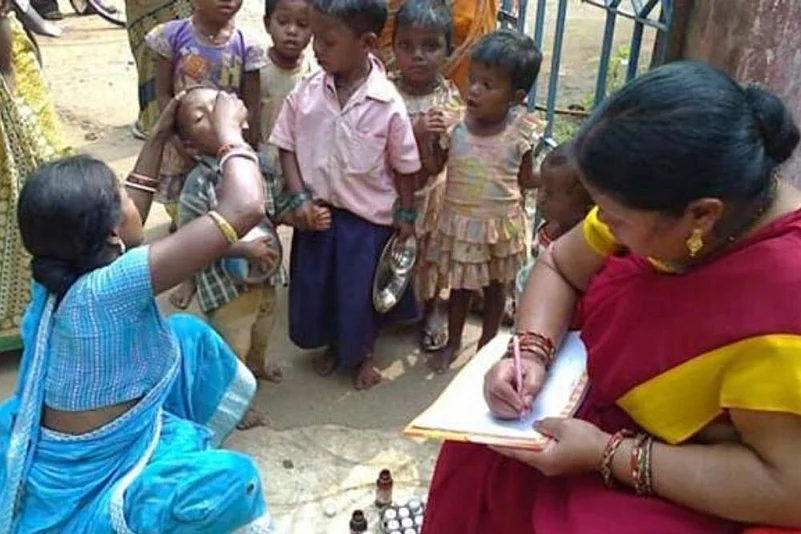The global pandemic has left us all feeling helpless and anxious about our future. But at a time when most of us are worried about our own well being, there are others who have set aside their own fears and concerns to help those who are the most vulnerable.
Our community health workers, better known as anganwadi workers, have been playing a critical role in fighting the pandemic at the grass root level, helping people in different states cope with the deadly virus and its fallout. These high-risk new responsibilities are over and above their already heavy workload of delivering nutrition to women and children and other health outreach services such as mass-immunization, and forging a vital link between the government and the community.
Many of them are not even properly equipped to work in the field. Recent reports reveal that anganwadi workers in several north Indian states are not counselled or trained properly for their new duties, and are expected to work without masks, sanitizers, and other must-haves in a Covid-struck world, despite their close contact with possibly infected people.
When the lockdown in the initial days of April and May this year curtailed the movement of millions of people across the nation, many such workers were stranded due to lack of transportation facilities. But they were still expected to do their jobs despite the limited transport facilities. Reports from the ground also reveal that the lockdown broke the supply chain at several places, even as the demand for food and other essentials grew exponentially across villages. This demand soared further with the surge of migrant-workers returning from cities, who expected the community health-workers to deliver food to them as well. Many of them were not ration card holders, and the supplies that reached the community workers were limited, leaving the community workers in a major dilemma. This disruption in supplies also hit essential commodities and services, which in turn impacted healthcare systems. Coupled with the economic slowdown, this obviously had a huge impact on nutrition rates.
The nationwide lockdown has thrown unprecedented challenges to children under five, school-going children, pregnant and lactating women, who are all particularly vulnerable to malnutrition. With the closure of primary schools and anganwadi centers, millions of children in rural India are unable to access to their guaranteed mi-day meals, potentially worsening an already existing “severe” malnutrition problem in India.
Even though the state governments are continuously striving to ensure the delivery of take-home ration (THR) under the Integrated Child Development Services [ICDS] programme, it is nowhere near
enough.
With cooked meals programs suspended in the wake of the pandemic, India’s anganwadi workers are now playing the additional role of educating the people as well as contact tracers of those infected. Since pregnant women, lactating mothers and young children are most susceptible, the workers are trying to distribute food rations to them first.
Freshly introduced mandates of community workers include keeping a track of people’s travel history, counselling communities on handwashing, social distancing, mask-wearing, and, whenever needed, even helping with community surveillance, especially of migrant workers.
But despite working selflessly for the safety of the nation, often risking infections, these anganwadi workers are forced to survive with meagre pay, without any social and occupational safety nets. This must change immediately. One of the most crucial roles played by the anganwadi workers is meeting the increasing demand for essential nutrition services at a lower cost despite the risk of the growing pandemic, and this needs recognition and commensurate incentives. It is imperative to ensure that these workers receive adequate nutrition-related training, and are appropriately equipped to provide quality nutrition and other care they are expected to deliver to our population. It is our duty to empower our frontline heath workers, who serve as the backbone of the country’s fight against the vicious problem of undernutrition, and now against COVID-19.
As per Lancet study released in May 2020, maternal malnutrition is one of the major causes of about 68% deaths of children under five years of age. This pre-pandemic malnutrition statistics are all set to go downhill, warns UNICEF. Keeping in view the clear and present danger, the nation must immediately act on two key areas. First is implementing key child survival interventions by holistic community based management of acute malnutrition that aligns with post-pandemic needs. And second, to empower, encourage and incentivise our frontline health workers. Because our country’s future depends on them.
(The author is a public policy consultant at Chase India)
















